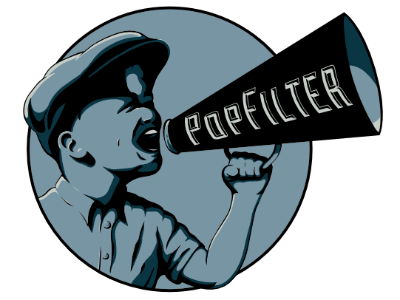POP FILTER VS. THE CLASSICS
POP FILTER
VS
THE CLASSICS OF 1979
There are a lot of reasons, at least on paper, that I should hate Terence Malick. Hate is probably a strong word. There’s a lot of reasons why sitting down to watch one of his movies — the few that there are — scares me. I know I’m in for all of the stuff that I usually don’t like about movies: the lingering cameras, the shots of nature, the glacial pacing. Qualities like these are so often poorly used, creating something worse than a bad movie: the bad, BORING movie. Ugh. If you’re going to suck, at least keep it at a brisk pace. If these fears and feelings come with me as a Malick movie starts, they dissipate almost immediately. I mean, there’s a reason that “Malickian†is a term, for fuck’s sake. He’s the master, and 1978’s Days of Heaven, his second movie, is no exception.
Having your name become a term usually means that there’s no shortness of people trying to be that term, copying, stealing, and reimagining what they think that term means. There’s an obvious problem with that. It’s not how we get pure, organic art. Directors find out what Malick does, and that it’s good, and then attempt to do the same thing, but not necessarily realizing the reasons that they’re doing it. They’re using faulty logic. It’s like saying “That painting of a red house is pretty. Therefore all paintings with red houses are pretty.†That’s an idiotic thing to say. There are so many things to consider with that original painting of a red house that could possibly make it pretty, so why would you isolate one of the things, throw it into your painting and hope for the best?
So, instead of taking these puzzle pieces that typically make up good movies, and putting them together in an order that hopefully makes sense, Malick has an endgame in mind, and then invents the puzzle pieces necessary. If you want to make something that’s Malickian, have a mood in mind, have an emotion or twelve in mind, and then sit down and think really hard about all of the ways you can evoke it. That’s the point. And there’s nobody better at it than Terence. If you need more proof, let’s look at this trifling plot.
Just before World War I, Richard Gere ends up working on a farm with his little sister and his girlfriend. For some reason, he and his girlfriend have decided that it would be easier to tell everyone that they are also brother and sister. Anyway, the rich farmer falls for Gere’s girlfriend, just as he finds out he only has a year to live. Gere hatches a plan for his girlfriend to marry the farmer and inherit his money when he dies, so that they can live the life they deserve to live, instead of being poor farmhands. OF COURSE the girlfriend then falls in love with the farmer. OF COURSE Gere and the farmer fight, and the farmer ends up dead. OF COURSE Gere goes out in a blaze of glory, hunted down by the cops. These are the things that have to happen in movies. But the thing that so many directors forget is that doesn’t have to be ALL that happens. The director can hold the finished script in his hands and say “OK. Now we have about 25% of the story.â€
And that’s what’s so great about a Malick movie: you’re not sad when the plot has seemingly stalled out. In fact, that’s what you’re hoping for. The “story†scenes are great, never as melodramatic as they could be, but it’s the moments in between that’s doing all of the evoking. Go to Netflix and start watching the movie. Now pause it every fifteen minutes. Think about how little the story has progressed. Now think about the hole in your chest. But why? How could that be? No one has died. No one has proposed or gave birth or stabbed someone in the back. There have been no epic speeches or triumphant sports victories. But you can’t help but be fully locked in to the plight of these characters. No director working today has a better grasp of the tools in his directorial tool belt like Malick does. The way the camera moves, and everything it takes in, the hayfields where the movie takes place that seem to never have an end, the little sister’s narration, her POV slowly filtering in what we’re allowed to learn about these crazy fucking adults who are her only window into learning how the world works. There’s not a single false note here. Even though the movie more closely resembles a movie from 1948 than 1978, there’s nothing stagy here. The term “movie magic†usually means state of the art graphics, used to make the unreal seem real. Fuck that. I just spent ninety minutes learning a million different things in ways that routinely prove why this is the greatest art form ever conceived. That’s magic, mother fuckers.-RH

